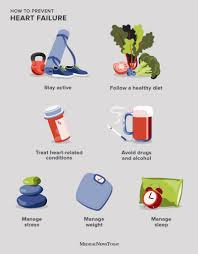Understanding Heart Health: Promoting Awareness on Prevention, Early Detection, and Lifestyle Choices to Reduce Risk and Improve Cardiovascular Well-being
1. Preventing Heart Disease
Heart disease remains one of the leading causes of death worldwide, but many cases are preventable with the right knowledge and action. Prevention begins with understanding the risk factors such as high blood pressure, high cholesterol, diabetes, smoking, obesity, and a sedentary lifestyle. Raising awareness about these risks empowers individuals to make healthier decisions. Community programs, public campaigns, and school education can encourage healthier food choices, physical activity, and regular blood pressure monitoring. Prevention also includes managing stress, reducing alcohol consumption, and avoiding tobacco use. Small changes, such as walking daily or reducing salt intake, can significantly lower heart disease risk.
2. Early Signs and Detection
Recognizing the early signs of heart disease is crucial for timely intervention and improved outcomes. Common symptoms include chest pain or discomfort, shortness of breath, fatigue, dizziness, and irregular heartbeat. Public health initiatives should emphasize the importance of not ignoring these warning signs and seeking immediate medical care. Regular health screenings, including cholesterol checks, ECGs, and blood pressure tests, can detect heart-related issues before symptoms appear. Health professionals play a key role in educating patients on what to watch for and when to act. Early detection can prevent heart attacks and reduce long-term complications through medication or lifestyle changes.
3. Lifestyle for a Healthy Heart
A heart-healthy lifestyle involves a balanced diet, regular exercise, and stress management. A diet rich in vegetables, fruits, whole grains, lean proteins, and healthy fats supports heart health, while reducing intake of processed foods, sugar, and salt. Physical activity strengthens the heart muscle, lowers blood pressure, and improves circulation—aim for at least 30 minutes of moderate activity most days. Managing stress through mindfulness, hobbies, or professional support helps lower blood pressure and reduce strain on the heart. Avoiding smoking and limiting alcohol consumption are also essential. Health campaigns and community support can guide people in maintaining these heart-healthy habits for life.
"This Content Sponsored by Buymote Shopping app
BuyMote E-Shopping Application is One of the Online Shopping App
Now Available on Play Store & App Store (Buymote E-Shopping)
Click Below Link and Install Application: https://buymote.shop/links/0f5993744a9213079a6b53e8
Sponsor Content: #buymote #buymoteeshopping #buymoteonline #buymoteshopping #buymoteapplication"






Comments
Post a Comment